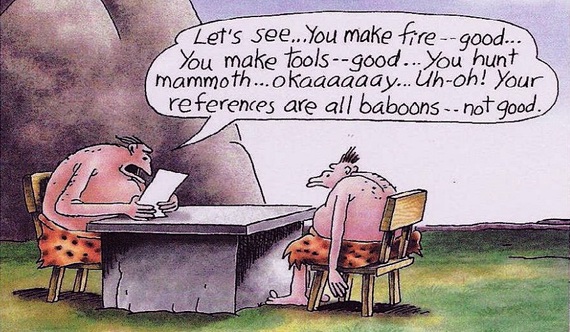
People often reach out to me for career advice, and interviews are a recurring theme in the conversation. How to ace the interview? How to address weaknesses? How many interviews to do? As anyone out there in the rat race of job hunting knows, the interview is key to landing the job, and it is often the toughest part of the process.
As I mentioned in this WSJ interview, I have interviewed for jobs over 100 times since starting my career in 2007. After negotiating the landmines of the interview over and over again, I can offer these tips:
1. Have multiple interviews in the pipeline. Like dating in Manhattan, interviewing is a numbers game. Just as my single friends make sure their dating "pipeline" is stocked with eligible prospects, your interview pipeline should be primed for action. That way, you can casually mention to one company how busy other companies are keeping you (this is also effective in dating). But if you remain unattached too long, people will start to wonder if something is wrong.
2. Some hobbies are better than others. You need to simultaneously show that you can work all day and night and that you are a well-balanced human being with interests outside of work (yes, this is contradictory). Remember that your stated interests do matter. Long solo walks on the beach do not scream teamwork, and mention bird watching only if you intend to work with birds. When in doubt, athletic activities are the safest bet.
3. Not all questions have an answer. For instance, I have often been asked, "Do you think the stock market will go up?" I have no idea, nor does my interviewer. With such questions, it doesn't matter whether you say yes or no, as long as you back your response with solid argument. Bonus points for creative answers delivered with high confidence. Here's an example: Tidal flows in the Atlantic Ocean will drive an unusually hot summer in the US, and warm weather is correlated with positive stock returns (fact), so we're going up from here.
4. Be thoughtful about your weaknesses. When asked to name your biggest flaw, honesty is a good idea, as long as you're thoughtful. My weakness is that I work too hard. Just kidding -- don't ever say that. Also, refrain from mentioning any weakness that would hurt your ability to do the job. For example, if it's an analyst role, do not admit you're bad with numbers. But it's harmless to confess that you have the artistic talent of a four-year-old.
5. Take an interest in your interviewer. Yes, you didn't sleep a wink last night. Yes, you're sweating bullets. But you must remain calm and appear fascinated by (or at least, vaguely interested in) your interviewer. Accept that you can't control your interviewer's conversational skills. I have heard interviewers go into detail about their likeness to Superman and their irritable bowel episodes (different people, thankfully). Nod along, and say "oh" or "hmmm" when there's a pause. Avoid asking, "Can we change the subject?"
6. The job market does not determine your success. Your passion matters much more than the state of the economy. In the bull market of 2007, I managed only one job offer after a prolonged, painful search; I had no direction or passion, and that came across clearly in interviews. In the recession of 2009, I landed five job offers since I was full of fire and had clear ideas about how I could add value to a company. You needn't have discovered your life's purpose, but, if you have, do mention it during interviews.
7. Deal with rejection. Remember that it's not you. (Or maybe it is.) It doesn't matter. The surest way to fail is to lose any hope of success. Optimism and preparation go hand in hand, like peanut butter and jelly. One without the other makes for a pretty lousy sandwich. Be optimistic that you will land the right job, and be prepared to make it happen. Go get 'em.
This post was originally published by Sofia Faruqi on LinkedIn here.
